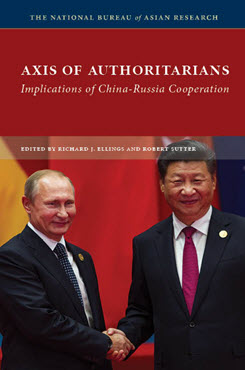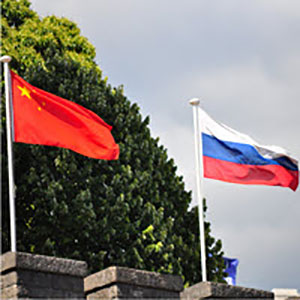China-Russia Cooperation
How Should the United States Respond?
This chapter provides a comprehensive view of Sino-Russian cooperation across the security, economic, and political realms and considers policy options for the United States.
EXECUTIVE SUMMARY
MAIN ARGUMENT
Cooperation between China and Russia has advanced considerably in the past decade. Their cooperation is driven both by shared interests, including the preservation of their authoritarian regimes and statist economic policies, and by opposition to the perceived U.S. efforts to impose a liberal international political and economic order. Their coordination in the political realm focuses on opposing U.S. efforts in existing international organizations to institutionalize liberal norms and on creating alternative political and economic organizations that are more conducive to their interests. The principal challenges to the U.S. stem from the individual policies of China and Russia rather than their combined efforts, but their increased willingness to coordinate policies complicates the U.S. ability to respond effectively to those dangers.
POLICY IMPLICATIONS
- Explicit U.S. policies designed to try to slow down or reverse this coordination are not likely to be effective without a substantial reorientation of U.S. policy in ways that would harm fundamental U.S. economic, political, and security interests.
- The U.S. can best meet the challenge posed by Sino-Russian cooperation by strengthening international engagement and support for U.S. allies and partners who share its interests and values.
- While the U.S. should not accommodate China’s or Russia’s demands solely for the sake of disrupting their cooperation, it should be prepared to take steps (consistent with core U.S. interests) to reduce the danger of an unintended security spiral with both China and Russia.
James B. Steinberg is University Professor of Social Science, International Affairs, and Law in the Maxwell School of Citizenship and Public Affairs at Syracuse University.
The author would like to thank Elise Roberts for her invaluable research assistance.



